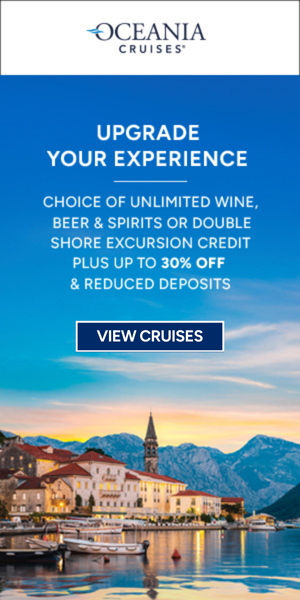Four Ways To De-Bunk Those Lingering Travel Myths
by Steve GillickYou sense that something is bothering your clients. They wanted an exotic vacation in a country with castles, shrines, temples, markets, adventure, incredible food, and friendly people. You recommended Japan and initially the couple was all in favor. But now there seems to be some hesitation.
You went through your “sales objections” checklist and considered the standard concerns: budget, politics, safety, timing, fear of traveling somewhere new, trust in the travel agent…but none seem to apply. Finally, after some open-ended blunt questions (i.e., what exactly is your concern about visiting Japan?), the clients reveal that a friend of theirs told them it is so crowded on Tokyo’s streets that you can’t move, and the subways have “stuffers” to shove passengers onto the trains.
You’ve been to Japan and on the one hand, these concerns are exaggerated, but on the other hand, there is a grain of truth in what the client is saying.
Travel myths have long been the bane of travel consultants. Myths tend to grow in size and become more potent as word spreads, similar to the children’s game “Broken Telephone.” From a destination point of view, myths can be disastrous. An event in one part of the country can be generalized in the minds of travelers as affecting the entire country. For example, when the SARS epidemic struck Toronto in 2003, it was Canada itself that was targeted by foreign government travel advisories.
Here are four ways to de-bunk those lingering travel myths that not only affect your sales but also hurt the tourism sectors of the countries involved.
The reader is the leader
No one is saying you have to digest every snippet of news on a daily basis, but those involved in selling travel need to have some idea as to the safety and accessibility of the products they sell. While newsworthy items may relate to violence, they also involve such factors as weather (storms, heat waves), politics (elections, demonstrations), currency fluctuations (great time for Americans to visit Canada due to the low dollar), health concerns (Zika virus, norovirus, radioactive contamination, pollution levels) and more.
But it’s not the amount you are able to read….it’s the research to which you are prepared to commit when a client expresses interest in a destination. Key words in news articles, such as “warning,” “advisory,” “caution,” “avoid,” etc., should send you to the internet to understand the situation as best you can. Knowing how to access information may be one of the most valuable skills you have.
Know your audience
Recommending the right trip for the right traveler is the hallmark of a successful travel consultant. Getting to know clients involves interviewing them, making observations, taking notes, and always striving to enhance the travel experience on the next trip. A conservative traveler who prefers Caribbean all-inclusives is not necessarily a candidate for a group adventure hiking tour in Nepal (although you may be surprised) and therefore you would attempt to match the personality of the client with the type of trip you are recommending.
By the same token, a very tentative traveler would feel the most comfort in a relatively close, popular destination that offers amenities and an ambiance similar to the lifestyle to which the traveler is accustomed.
First-hand experience
Personal travel and fam trips are great ways to “understand” a country. When we visited El Salvador, a visit with Gerry the ex-guerilla was one of our horseback-riding options. It begged the question about the “ex” and we learned that the civil war that had engulfed the country actually ended in 1992 (24 years ago). Despite the amazing tourism bounties that the country has to offer, many tour operators still assign El Salvador to the category of “off-limits.”
As for the Japan scenario about crowded conditions, yes Tokyo has a population of over 13 million and just like most major cities, rush hour can be a challenge on the streets and for the public transportation systems. In the mornings, the subway offers “Women-Only Cars” to add a safety component to the crowded conditions. In the evening, it’s always better to find a good Izakaya or stand-up sake bar to wait for the rush hour to end. In 15 trips to Tokyo I have never seen subway pushers, and I can’t recall any incidents of not being able to walk down a street due to crowds, other than during festivals.
Be a real Trip Advisor
With all due respect to a website with a similar name, anonymous travel reviews may be very popular but they don’t provide insight into the personality of the reviewer. Was the person upset with the hotel because his eggs were scrambled instead of fried? Does the reviewer hate the city because she ended up paying $4 for the ebony statue instead of the $3 she offered? As a professional travel consultant you are the traveler’s best source of objective, first-hand observations and recommendations, and you have the ability to set the record straight.
Some travel myths relate to the lifestyle of the destination. We hear descriptions such as fast-paced, party hearty, poor sanitation, unfriendly locals, lots of travel scams, really expensive, etc. Stereotyping a destination can be a great disservice to your clients (and to the country). While your clients may have picked up phrases from the media or from other travelers, it’s up to the travel professional to provide a reality check. To use our Tokyo example, there are very expensive areas for shopping, dining, and hotels, but in a city where each neighborhood has its own unique personality, there is a ton of choice. You can dine for $400 per person or for under $10, and both experiences will be very satisfying.
In countries with questionable sanitation you can recommend bottled water, specific restaurants to visit, and the advice to bring along your own toilet paper. For countries associated with fraud and scams you can suggest that the client not change money on the black market, only take legal taxis, leave the “bling” at home…but definitely explore and enjoy the destination.
Travel myths will always be with us. The duty of a travel consultant is to discover what myths may be causing client concern, weed out the myths from the truth, provide the client with the most accurate picture of the travel experience, and offer advice on how to overcome the issues on which the myths may be based. Start a “travel myths” file (serious and humorous) and give it out to clients. For some, it may resonate and help them to say “by the way, I am also concerned about travelling to…”
Steve Gillick is the Active Ingredient at Talking Travel, http://www.talkingtravel.ca, a consultancy in Toronto, Canada that specializes in writing and speaking about destinations, niche markets and travel trends. Contact Steve at:steve@talkingtravel.ca.
























